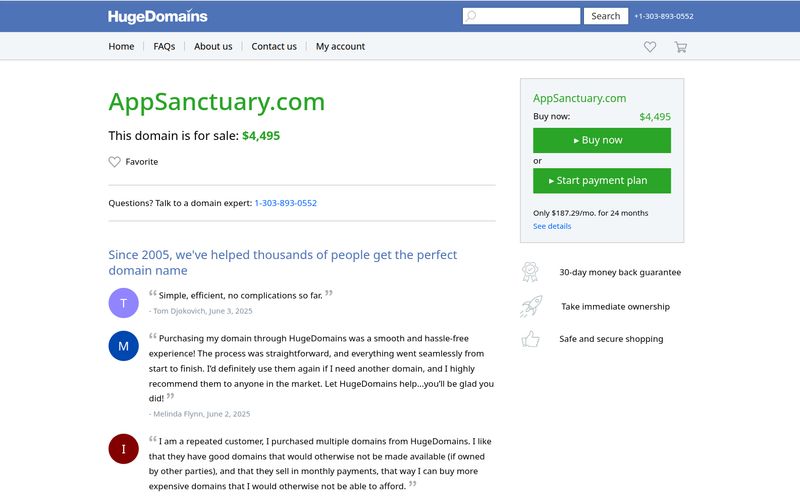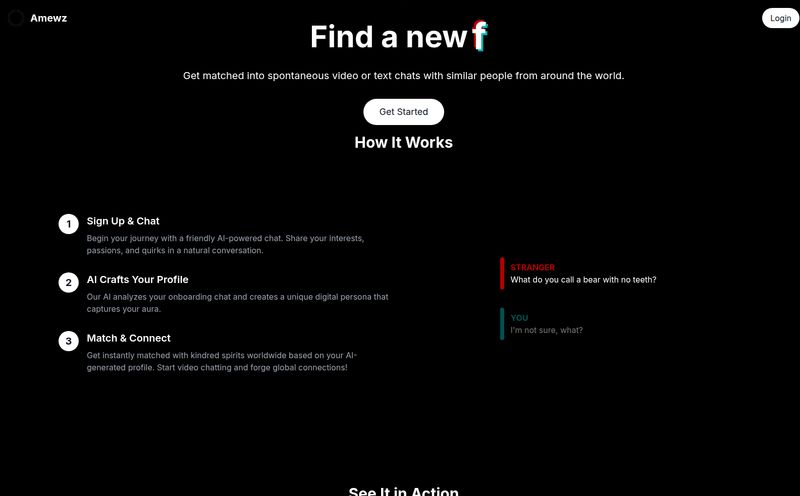You ever stumble upon a tool that’s so simple, so perfectly suited to its task, that you just kinda sit back and go, “Well, of course that should exist”? That was me, a couple years back, when I first landed on Ask YC.
For anyone in the startup world, the Y Combinator content library is sacred ground. It’s a digital treasure trove of essays from Paul Graham, practical advice from thousands of battle-tested founders, and hours upon hours of Startup School videos. It’s the closest thing we have to a free MBA in building things people want. The only problem? It’s… a lot. Finding the exact nugget of wisdom you need can feel like searching for a specific needle in a giant stack of other, equally sharp needles.
And then Ask YC came along. It wasn’t just another search bar. It felt different. It felt smarter. And now, it's gone. If you try to visit the site today, you’re greeted with a simple, almost poignant message: “Thanks for using Ask YC! But, we are no longer supporting this site.”
So what was this thing, why did we love it, and where did it go? Let’s take a walk down memory lane.
What Exactly Was Ask YC? (And Why Was It So Good?)
At its heart, Ask YC was a purpose-built search engine for the entire Y Combinator universe. Think of it as a specialized librarian for the world's most intense startup university. You could throw a query at it, and it would sift through all of YC's essays, blog posts, and resources to find the most relevant answers.
But the real magic wasn't just that it searched YC content. It was how it searched. This little tool used semantic search, which is a fancy way of saying it understood the intent and context behind your question, not just the specific keywords you typed.
The Semantic Search Secret Sauce
This is a big deal. A standard keyword search is literal. If you search for “startup money,” it looks for pages with the words “startup” and “money.”
Semantic search is more like talking to a person. You could ask a messy, human question like, “How do I figure out what my company is worth before I have any revenue?” and Ask YC would understand you were talking about pre-seed valuation, SAFE notes, and market sizing. It would then pull up Paul Graham’s definitive essay on fundraising and maybe a video from a YC partner on the same topic. It was less of a search engine and more of a research assistant. It just got it. This contextual understanding made discovering relevant startup advice incredibly efficient.

Visit Ask YC
The Inevitable Pivot: The End of an Era
So if it was so great, why did it disappear? Well, welcome to the startup lifecycle. The farewell message on the old Ask YC page gives us the clue we need: “Check out our core product at ora.ai.”
This wasn't a failure. It was an evolution. My guess? Ask YC was likely a brilliant side project, a proof-of-concept, or an early iteration of a much bigger idea. The team behind it built this fantastic, focused AI tool and realized the underlying technology was too powerful to be confined to just one content library. It’s a classic, and often smart, move. Why build one useful thing when you can build a platform that lets everyone build their own useful things?
And that leads us to its successor.
Meet the Successor: A Quick Look at Ora.ai
The spirit of Ask YC lives on in Ora.ai. But what is it? Ora bills itself as a platform for building and sharing Large Language Model (LLM) applications. In simpler terms, it gives you the power to create your own custom chatbots and AI-powered interfaces, much like Ask YC, but for any data source you can imagine.
You could, in theory, use Ora to build:
- An “Ask My Company Docs” bot for new employees.
- A customer support bot trained on your specific product manuals.
- A creative partner bot fed with all your favorite sci-fi novels.
The team essentially took the engine they built for Ask YC, polished it, and turned it into a creative suite for others. They productized the magic. It’s a bittersweet ending for those of us who loved the original tool, but it's an exciting development for the AI space in general. They didn't just kill their darling; they set it free to spawn a thousand new ideas.
The Legacy of a Great (But Short-Lived) Tool
Even though it’s gone, Ask YC leaves a small but important legacy. It showed us the immense potential of niche, AI-powered search. Google is a magnificent beast for general knowledge, but for deep, domain-specific expertise, a focused tool can be a game-changer. It saves time, reduces noise, and delivers higher-quality results.
It also served as a huge testament to the value of Y Combinator's content. The fact that their library is rich enough to warrant its own specialized search engine says it all. For any founder, that content is still there, even if you have to do the searching yourself now. It’s just a little more work.
In the end, the story of Ask YC is a classic Silicon Valley tale. A cool project is born, it serves a purpose brilliantly, and then it makes way for a bigger, more ambitious vision. We can’t be mad about that. We can only be thankful for the time we had with it and excited to see what the creators build next.
Frequently Asked Questions about Ask YC
- What was Ask YC?
- Ask YC was a website with a semantic search engine designed specifically to find answers within Y Combinator's vast library of content, including essays, videos, and blog posts. It was highly valued by entrepreneurs for its ability to understand the context of their questions.
- Is Ask YC still available?
- No, Ask YC is no longer supported or available. The website now shows a message thanking users and directs them to a new product, Ora.ai.
- Why was Ask YC shut down?
- While there's no official press release, the evidence points to a strategic business decision. The creators of Ask YC pivoted to focus on their core product, Ora.ai, which is a platform that allows anyone to build custom AI applications, expanding on the technology that powered Ask YC.
- What is Ora.ai?
- Ora.ai is the successor product from the team behind Ask YC. It's a platform that lets users build and share their own LLM-powered applications or chatbots, trained on custom datasets. It essentially democratizes the technology that made Ask YC so effective.
- Are there any good alternatives to Ask YC?
- Unfortunately, there isn't a direct one-to-one replacement. The best alternative is to search the Y Combinator Library and Paul Graham's essays directly. You can also use advanced search operators in Google (like `site:ycombinator.com [your query]`) to narrow your results.
- Was Ask YC a free tool?
- Yes, from all appearances, Ask YC was a free tool for the community to use, which was part of its appeal to aspiring and early-stage founders.
A Final Thought
It's always a little sad when a useful tool rides off into the sunset. But the digital world is defined by change. Ask YC was a perfect product for its time, a brilliant solution to a real problem. And while we’ll miss its simplicity, its story is an optimistic one—a reminder that great ideas don’t die, they just evolve into new, often bigger, forms. So here's to Ask YC, a tool that was, and here's to Ora.ai, a platform for what's next.
Reference and Sources
Ora.ai - The successor platform from the creators of Ask YC: https://ora.ai/
Y Combinator's Content Library: https://www.ycombinator.com/library
Paul Graham's Essays: https://paulgraham.com/articles.html



